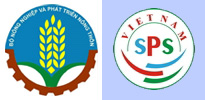
Despite many difficulties, in the first half of this year, Vietnam's goods export still grew by double digits, with a trade surplus estimated at USD710 million. However, the export situation in the second half of the year has many potential risks and challenges, forcing export industries to make reasonable calculations to minimize damage and reach their set targets.
Taking advantage of FTAs
Looking at export results, as well as the trade surplus of Vietnam, in the first half of this year, Mr. Nguyen Viet Phong, Director of the Department of Trade and Services, General Statistics Office (Ministry of Planning and Investment), said that the maintenance of enterprises depends on having access to large traditional export markets and taking opportunities provided Free Trade Agreements (FTAs), which have been vital to exports achieving double-digit growth.
Agriculture, forestry and fishery is one of the commodity groups with impressive export growth in the first half of this year, with a total export value of USD27.88 billion, up 13.9% over the same period last year. Nguyen Van Viet, Director of the Planning Department (Ministry of Agriculture and Rural Development), said that besides boosting production, the agricultural sector actively researched, forecasted and taken advantage of opportunities from FTAs to promote export of agricultural products.
“The units have increased promotion and advertising in the form of online (online) for products that have been opened and officially exported to major markets such as China, the United States, the EU, Russia, and Brazil. At the same time, potential markets such as Japan, Korea, ASEAN, Australia, New Zealand and the Middle East are also well exploited," said Nguyen Van Viet.
Besides the bright spot in the export of agricultural, forestry and fishery products, according to Mr. Tran Thanh Hai, Deputy Director of the Import-Export Department (Ministry of Industry and Trade), the increase in fuel prices such as crude oil and coal also contributed to the increased export value of Vietnam's goods in the first six months of the year.
"Vietnam is a country that both exports and imports fuel. The tension in recent times, especially the conflict between Russia and Ukraine, has contributed to pushing up fuel prices in the world. On the one hand, Vietnam has to import petrol and oil, which also affects the import value of this group of products. On the other hand, Vietnam exports crude oil and coal. In the first six months of the year, although the export volume of these items decreased, the export value is still increasing, which shows a relative balance in the balance of imports and exports for products related to energy and fuel,” said Mr. Tran Thanh Hai.
Challenges from rising input costs
In addition to favorable factors, Deputy Minister of Industry and Trade Do Thang Hai said that recently, manufacturing enterprises have faced many difficulties due to increased production costs (transportation, warehousing, input material prices), causing production costs of enterprises to increase. Some groups of goods produced by FDI enterprises reduced production output due to declining market demand, which affected the growth rate of both industrial production and export. Notably, the blockade measures in China to prevent the pandemic have greatly affected Vietnam's production and exports, including; reducing the need to import goods and delaying delivery of goods.
“The situation of exporting goods across the border has improved but is not stable. The situation of goods lying in wait at the border gate area is still happening due to the large number of vehicles coming in and too many compared to the clearance capacity,” the leader of the Ministry of Industry and Trade said.
According to the Ministry of Industry and Trade, there is a risk of supply chain disruption due to escalating trade and geopolitical tensions and high freight rates will create more difficulties for import and export activities. Although the trade turnover between Vietnam and Russia and Ukraine is not large, these two countries provide basic raw materials and agricultural products such as wheat, raw materials such as coal, fertilizer, and other products of metals.
Mr. Tran Thanh Hai said; “The prices of fuel and basic commodities may continue to rise, affecting the input factors of enterprises. In particular, the high price of petrol makes the overall transportation cost continues to increase. These are factors that adversely affect Vietnam's import and export activities.”
Some economic experts noted that inflation in many countries is showing signs of increasing, especially in large consuming markets such as the US and EU, which will reduce the demand for commodities of consumers and households. This will also has a significant impact on Vietnam's exports. This is an aspect that import-export enterprises must pay attention to and calculate appropriate response plans.
From the perspective of the state management agency, Mr. Do Thang Hai affirmed that in the last months of the year, the industry and trade will focus on supporting businesses to make good use of the signed FTAs to accelerate exports and boost consumption in country and review and recommend solutions to reduce taxes and fees or propose solutions to support the affected subjects in the case of input prices of some commodities (petroleum, fertilizer, etc.).
Source: VCN
Keywords: import, export, trade surplus, revenue



















